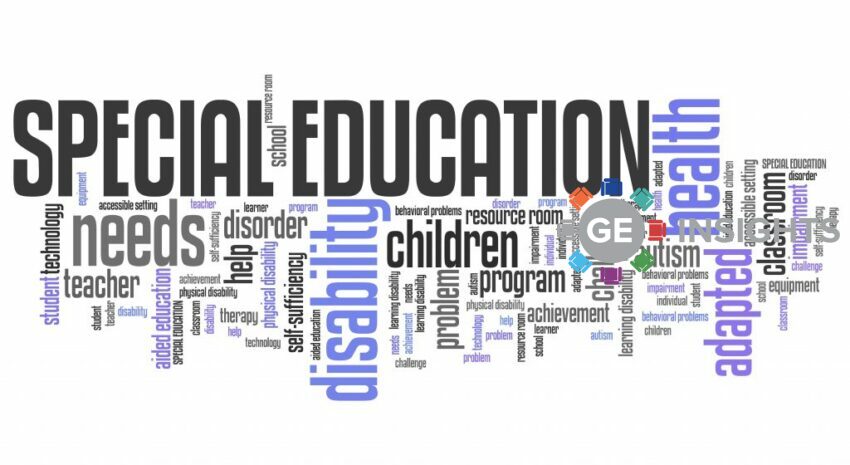‘Complex Needs’ is a term for people who have two or more of long-term difficulties, often mental health-related, or comorbidities of mental and physical health problems, which limit their ability to live independently.
Ollie Hilbery, Director of Making Every Adult Matter (MEAM) [1] laid out the current picture for people with multiple disadvantages:
- Services are often built around the needs of the service, not the individual.
- There is a lack of a person-centered and trauma-informed approaches in adult support services. As a result, the services are often not reflective of, or responsive to, people’s experience of need.
- A lot of these services are great at dealing with singular issues but not so good at helping people with a range of complex needs.
- Often people experience several problems at the same time such as homelessness and poor mental health. When these individuals have ineffective contact with services it results in them living chaotic lives.
Case Study: Supporting People Experiencing Homelessness and Domestic Abuse through a Multi-Agency Approach
Lauren Wallace and Lucy Campbell from Fulfilling Lives Islington and Camden (FLIC) [2] spoke to us about the ways their organisation is supporting people with multiple disadvantages.
FLIC is an 8-year Lottery Funded Learning Project with a focus on the way that damaging relationships affect vulnerable people. A focus on domestic abuse and homelessness is at the core of FLIC.
They work mainly with women; this was not the original plan when the project was formed. However, it became apparent that a gendered approach to the work would be useful as most of the clients were female:
- 95% of the women that FLIC work with have experienced domestic abuse and/or other forms of violence
- 0% of women were receiving specialist support for these issues when they started working with them
- It is challenging to use Multi-Agency Risk Assessment meetings for survivors experiencing multiple disadvantages
- It is challenging for homelessness services to support survivors at high risk. For example, women who are always with their perpetrators, especially those that are homeless

FLIC wanted to create a service that helped people overcome these challenges, with an awareness that many of the people who would be using their services have multiple disadvantages.
Everything that they do at FLIC is learned through clients and their needs. Lauren and Lucy shared what a client said of their experience of domestic abuse and homelessness:
“Being in an abusive relationship, your partner wants to control you so isolates you from everyone. They know that support workers and family are going to notice that something is wrong with you”
“Having support makes you feel like you’ve got someone to turn to if something goes bad. You can speak to them about what’s going on because you can’t speak to your partner. Speaking to a worker and having support makes you not do anything stupid like self-harm or drinking.
“Having someone to speak to distracts you and makes you realise that there are other options. Having someone to call when you actually want to get the help, it’s having someone to listen not someone to say ‘ah I told you so’”
“When someone opens up about abuse, it’s a big thing. They’re ready but they’re still apprehensive. It’s about supporting them to follow through and to carry on going”
“It makes you sit down and realise how you were before you met the person, what’s changed since you met the person and what you’re losing”
These client testimonies inform the motivations of FLIC. They have identified that victims of domestic abuse and multiple disadvantages need specific things from services:
- A safe home
- A strengths based holistic support
- One long term support worker they can trust
FLIC continue to strive to provide the support that meets these three key needs when offering services to their clients.
Other Services Supporting Victims of Violence and Multiple Disadvantages
FLIC realise from their frontline work that domestic abuse seems to be a universal experience for women suffering from other forms of disadvantage such as homelessness.
Lauren explained that domestic violence services that try to reach out to this client group often have high caseloads and lack the funding to go out and meet women where they are. This means that this client group are not able to access the support services that they really need.
FLIC feel that domestic abuse caseworkers often carry a huge deal of risk without necessarily having the confidence or the expertise to manage the work effectively.
So, they decided that there needed to be a better solution to supporting people with multiple disadvantages. They developed several projects to promote the well-being of vulnerable adults whilst maximising the workflow of caseworkers.
Partnership Project: FLIC and Solace Housing First
The challenge: Survivors experiencing multiple disadvantages need stable housing and holistic support to address issues. Specialist support is often not available/accessible to this group. There is a lack of partnership projects.
- This project was started in 2018 and is funded by FLIC and delivered by Solace Women’s Aid
- It aims to improve, learning, collaboration and understanding between women’s and homelessness sectors. Therefore, addressing the multiple disadvantages of the client
- The project works with women experiencing domestic abuse and other forms of violence, who have been repeatedly referred to Multi-Agency Risk Assessment meetings
- These women are also homeless, experiencing poor mental health, and substance misuse.
- In the first 18 months, 100% of women were housed and engaging with regular holistic support
- The project has now become a commissioned Violence against Women and Girls service, with funding given in 2020 by Islington to cover the next 3 years
This project was successful due to the collaborative approach that it took. Services can learn from each other about innovative strategies and techniques in providing excellent support services. These collaborations are working towards solving the problem of a lack of partnership projects in helping those with multiple disadvantages.
Consortium Project: WiSER
Challenge: To reach survivors experiencing domestic abuse who may not be able to engage with traditional domestic abuse service models.
- WiSER is a consortium project that is led by Solace women’s Aid and works with women aged 16+ affected by violence, who find it difficult to engage with support and who are struggling with multiple disadvantages
- The project consists of 9 partners – 8 women’s sector partners and FLIC. Opportunities for sharing learning, expertise and developing new approaches to better meet the needs of women
- The project operates across 8 boroughs
- The case loads are small which means that the project resources are not stretched
- A trauma informed approach is used to ensure all the client’s disadvantages are considered
- An assertive outreach approach is used which means that workers go straight to the client’s place of need instead of operating on an appointment basis
The fact that this project seeks out the vulnerable person, enables a quality service to be delivered. It maintains inclusivity and utmost accessibility to services by acknowledging that not every client can access traditional and formal meetings.
Project: Working Effectively with Perpetrators and Survivors in Homeless Settings
Challenge: How to reach homeless survivors who are always with perpetrators?
- A focus on increasing the safety for survivors experiencing multiple disadvantage
- Collaboration between FLIC and Standing Together to produce a support guide
- The guidance aims to improve the skills, confidence and safety of practitioners working in these scenarios
- The guidance also recognises that whilst services need to provide compassionate support to the survivor, another important part of ensuring safety is providing practical support to the perpetrator and holding them accountable for their behaviour
- Aims to develop perpetrator training programmes and create standardised perpetrator policy
This strategy is unique in that it recognises the pivotal role of the perpetrator in the recovery of the vulnerable adult. It is pioneering ways to tackle the source of the chaos through directly addressing the perpetrator instead of seeing them as a barrier to client recovery.
Project: Team Around Me – A Collaborative Approach
Challenge: How to improve multi-agency case coordination and capture system blockages that arise. To better support complex cases that are referred to multi-agency risk assessment meetings
- Lots of agencies hold multi- agency risk assessment meetings for clients with multiple disadvantages and whilst this is a good thing, there isn’t a standardised approach to how these discussions are managed
- Lack of consistency in these support meetings is hard for clients with multiple disadvantages. The meetings could often become quite negative and compassion fatigue from the case worker could occur
- The project developed a standardised structure for meetings, it recognises strengths and protective factors to the client’s case before focusing on the challenges to lift the meeting
- The lead professional is chosen by the client to give the client agency
The standardisation of multi-agency risk assessment meetings enables service users to feel safe in the knowledge that they are receiving consistent advice. It also encourages this service to be taken advantage of by the service user, reducing the workload of caseworkers who usually must visit the client at the source of their issue.
Recommendations
It is crucial that the sector looks at developing training courses and support projects for perpetrators as well as survivors. It should be recognised that as the survivors, the perpetrators likely have multiple disadvantages and should receive support to minimize harm.
It should be ensured that services are standardised to minimize chaos for vulnerable people with multiple disadvantages.
[1] Hilbery, Ollie. 2021. Director of Making Every Adult Matter (MEAM)
[2] Wallace Lauren & Campbell Lucy. 2021. Fulfilling Lives Islington and Camden
Register FREE to access 2 more articles
We hope you’ve enjoyed your first article on GE Insights. To access 2 more articles for free, register now to join the Government Events community.
(Use discount code CPWR50)




